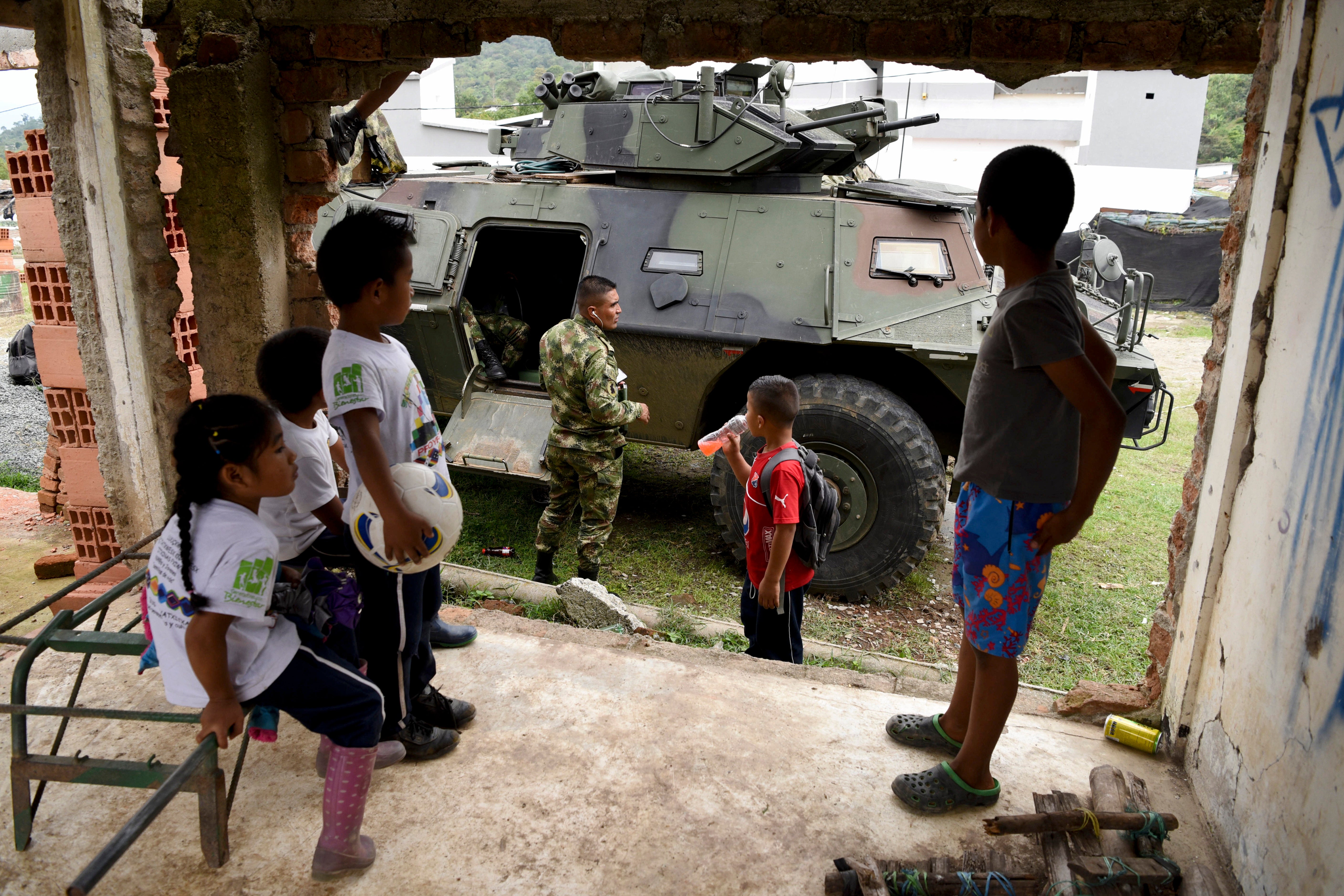UN: Violence rising in rural Colombia despite peace deal
The United Nations Human Rights Office says in a report that violence is increasing in many rural areas of Colombia despite a 2016 peace deal between that nation’s government and its largest guerilla group

Your support helps us to tell the story
From reproductive rights to climate change to Big Tech, The Independent is on the ground when the story is developing. Whether it's investigating the financials of Elon Musk's pro-Trump PAC or producing our latest documentary, 'The A Word', which shines a light on the American women fighting for reproductive rights, we know how important it is to parse out the facts from the messaging.
At such a critical moment in US history, we need reporters on the ground. Your donation allows us to keep sending journalists to speak to both sides of the story.
The Independent is trusted by Americans across the entire political spectrum. And unlike many other quality news outlets, we choose not to lock Americans out of our reporting and analysis with paywalls. We believe quality journalism should be available to everyone, paid for by those who can afford it.
Your support makes all the difference.Violence is increasing in many rural areas of Colombia despite a 2016 peace deal between the government and the country's largest guerrilla group, the United Nations Human Rights Office said in a report. It called on the government to boost rural development and take steps to encourage members of Colombia's remaining illegal groups to demobilize.
The report, published Tuesday, said homicides decreased after the Colombian government signed the peace deal with the Revolutionary Armed Forces of Colombia, which ended five decades of war and generated hope in rural communities.
But it noted that in the past two years violence has increased significantly in remote areas where smaller armed groups are fighting over drug trafficking routes and territory that was once controlled by the FARC.
According to the U.N., 100 human rights defenders were killed across the country in 2021, compared to 61 in 2016, the year the peace deal with the FARC was signed. The organization also noted that forced displacement increased in 2021, and that currently more then 54,000 people in the western province of Choco are trapped by armed groups who will not allow them to leave their villages.
Juliette de Rivero, the U.N. High Commissioner for Human Rights' representative in Colombia, said in some pockets of southwestern Colombia rebel groups and drug trafficking organizations have such great control over their territory that they are issuing ID cards locals must carry to move between villages. She added that in some communities militias are also also asking visitors to present lab tests that show they don’t have any sexually transmitted diseases.
De Rivero said Colombia's government has relied mostly on military operations to improve security in rural areas, but that this strategy has failed to stop the expansion of illegal groups.
“The success of the state must be measured in a reduction of human rights violations, and not in terms of how many members of armed groups are captured or killed,” De Rivero said. “The state’s security strategy must focus on protecting the civilian population and on prevention by tackling the structural causes of violence.”
The U.N. is recommending that Colombia’s government boost implementation of a land reform program that is part of the 2016 peace deal with the FARC. The report also says that the government needs to re-launch development programs that will encourage farmers to stop growing coca and move into legal crops.
President Ivan Duque’s government has mostly fought cocaine production through the forced eradication of crops by Colombia’s military,. Duque will soon finish his four-year term.
Earlier this year, Colombians elected leftist Gustavo Petro to the presidency. Petro, who was formerly a member of a rebel group, will be inaugurated in August and has promised to boost investment in rural areas as a way to reduce drug related violence.